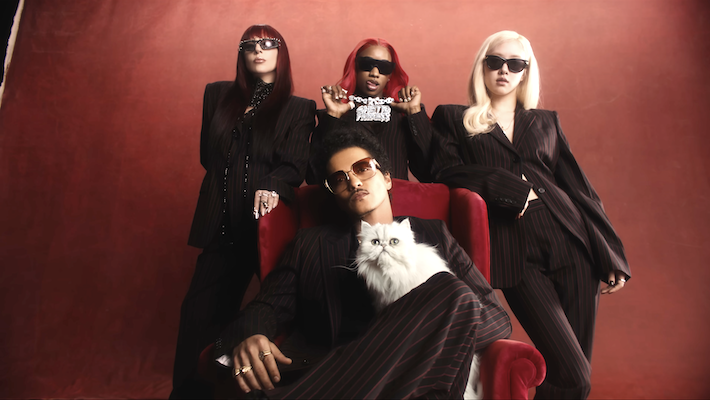Don't become a rhinoceros: Trump's accession and our new theater of the absurd
It's not hard to see why former critics making nice with Donald Trump — like the tech billionaires who are reportedly helping him recruit loyalists to work in his administration — bring Ionesco’s play to mind.

As I see former critics of Donald Trump’s most egregious transgressions lining up to kiss his ring at Mar-a-Lago or participating in his transition plans, one word keeps floating into my mind: “Rhinoceros.”
It’s the title of a play by Eugène Ionesco that opened in Paris in January 1960 and has been performed all over the world ever since. “Rhinoceros” is a classic of the “theater of the absurd,” a genre in which vaudeville farce and tragedy meet and mingle.
Set in a small unnamed town in France, the play tells the story of a rhinoceros that comes roaring through the town square, stirring up clouds of dust. The residents’ astonishment (“Oh, a rhinoceros,” they all repeat) soon turns into curiosity (was it an Asian rhino or an African one, with one horn or two?), and then into outrage when the rhino runs over a kitten.
But the next day, more animals show up and it becomes clear that the town’s own citizens are turning into rhinoceroses. Many people are horrified, but few remain that way; before long, all have undergone the transformation except one holdout: a very ordinary man named Bérenger, who keeps exclaiming that being human is better than being a rhinoceros. A coworker tells him there’s no point in getting upset over “a few cases of rhinoceritis,” We must keep an open mind, he says, and anyway, it’s probably just temporary. After that, the coworker leaves to join the crowd of trumpeting beasts on the street.
This play comes to mind when I see former critics now making nice with Trump — like the tech billionaires reportedly helping him recruit loyalists to work in his administration. The play itself is an allegory, and in fact some early critics faulted the author for having written a didactic work, despite all the absurd shenanigans in it that make audiences laugh out loud.
Ionesco, for his part, claimed that performing the play only for laughs would be a betrayal, because it was not just a farce but also a tragedy. In a preface to the French version, he explained that he first got the idea when he read an account by the philosopher and essayist Denis de Rougement about his experience of witnessing a rally in Germany on the cusp of World War II in 1938.
When he saw the crowd’s delirium at the sight of their leader, Rougement wrote, he was almost tempted to follow suit, as if electrified by the current. But something in him resisted, which was not on the order of reasoned argument. Rather, it was a revulsion of his whole being, an absolute refusal.
That’s the kind of refusal that Ionesco’s unlikely hero Bérenger brings to “rhinoceritis.” For a moment near the end, when he alone is still a human, he expresses regret at being incapable of metamorphosing like the others, but then finds himself again: “I’m the last man left, and I’m staying that way until the end. I’m not capitulating!”
Ionesco wrote that his play was against every form of totalitarianism, which must be resisted not merely rationally but with one’s whole being. He knew whereof he spoke.
Ionesco’s mother was French, his father Romanian. Educated in Romania, where he had many intellectual friends, he spent two years on a postdoc in Paris in the late 1930s. When he returned to Bucharest in 1940, he was horrified to discover that some of his good friends, including well-known philosophers, had become sympathizers if not outright members of the fascist Iron Guard movement.
In his journal that year, he characterized the fascist sympathizers as rhinoceroses. In 1942, he moved to Paris for good.
Today, when some powerful people are rushing to get into the good graces of Donald Trump before he even reenters the White House, they are engaging in a form of preemptive appeasement, another name for which could be early-onset rhinoceritis. New York Times columnist Paul Krugman has described the “crony capitalism” that is likely to be the norm once the founder and still owner of the Trump Organization returns to power.
One can assume that the preemptive appeasers now making their moves are doing so for the rewards they anticipate as a result — or, perhaps even worse, they’re trying to head off his threatened retributions. The most successful bullies are those who can provoke fear and propitiation merely by their words, before any action on their part.
It seems hardly believable that even people with enormous personal and institutional resources cannot muster enough courage to wait to see what Trump actually does before courting his favor, let alone wait and then act to oppose him. Those of us who lack their resources can only hope that the Bérengers of this country, the ordinary people who can’t let go of the idea that being human is better than being a brute, will continue to refuse the seductions of the herd.
Susan Rubin Suleiman is professor emerita of French and Comparative Literature at Harvard University. Her books include “Crises of Memory and the Second World War” and “István Szabó, Filmmaker of Existential Choices.”
What's Your Reaction?






































![Depth of Knowledge and leading PD [NAESP]](http://dangerouslyirrelevant.org/wp-content/uploads/2025/01/NAESP-Logo-Square-2.jpg)








































